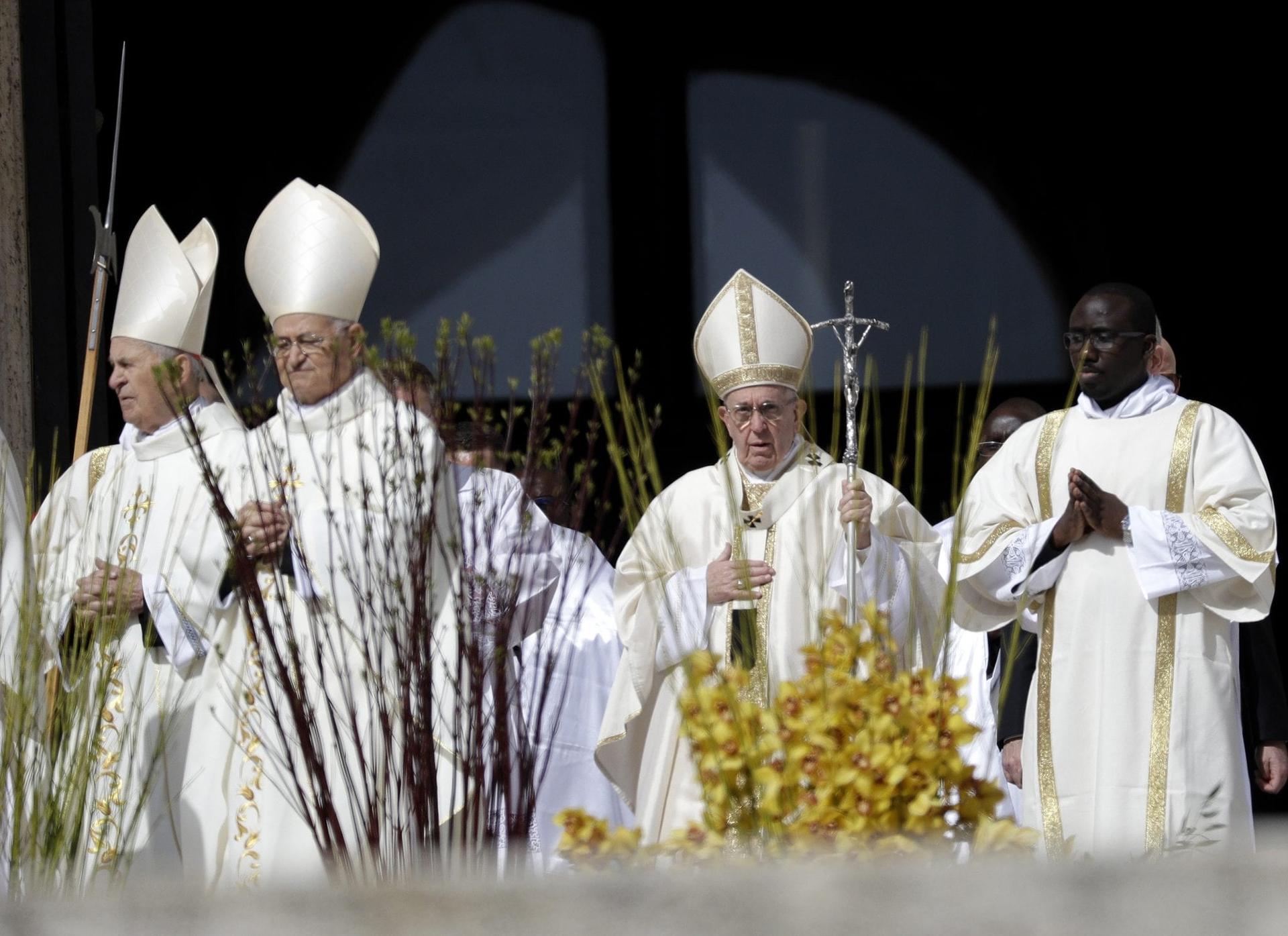ROME – Over the weekend, critics of Pope Francis’s 2016 apostolic exhortation Amoris Laetitia on marriage gathered for a summit in Rome and asked, “Catholic Church where are you going?” According to a Francis confidante, the pope’s new document Gaudete et Exsultate on holiness presented at the Vatican on Monday answers that question.
“It’s obvious that Pope Francis wishes to point to the attention toward what is decisive about Christian life,” said Archbishop Angelo De Donatis, the Vicar of Rome, during the press conference April 9. “Where is the Church going?” he asked, answering that the path to holiness is in “keeping your gaze wide.”
“Belonging to Jesus is empty if the Church does not keep its path in line in the direction of holiness,” said De Donatis, who was personally tapped by Francis to make Monday’s presentation.
Marking Pope Francis’s third apostolic exhortation, after Evangelii Gaudium in November 2013 and Amoris Laetitia in March 2016, Gaudete et Exsultate is relatively brief, and offers the pontiff’s reflections on what the Second Vatican Council called the “universal call to holiness.”
RELATED: In ‘Gaudete et Exsultate,’ Pope answers ‘Amoris’ critics: Don’t ‘reduce, constrict’ Gospel
In effect, Francis argues that holiness is not the province of a spiritual elite, nor is it primarily about mystical experiences, but rather something to be pursued within the context of ordinary daily life. He then warns of two ancient heresies, Gnosticism and Pelagianism, which he believes still afflict the Church today.
“Contrary to the promptings of the Spirit, the life of the Church can become a museum piece or the possession of a select few,” the pope writes. “This can occur when some groups of Christians give excessive importance to certain rules, customs or ways of acting. The Gospel then tends to be reduced and constricted, deprived of its simplicity, allure and savor.”
Italian journalist Gianni Valente, who was speaking at the Vatican presser, quoting the document, said that Christianity reduced to a series of ideas and precepts becomes a form of “propaganda and marketing,” adding that the document criticizes the “elitism of those who feel superior to the multitude of the imperfect, those who fall short.”
“Pope Francis wants to free the Church from the new forms of Gnosticism and Pelagianism,” Valente said, which are not only present in society as a whole, but also within the Church itself. The pope “wants to invite everyone to look for the face of God everyday and recognize them as a real symbol of the real and efficient presence of Christ’s design.”
Though Valente said the document was not written as a direct response to the criticism of Amoris, which opened a cautious door to communion for the divorced and remarried, he said that it represents a continuity with its message.
It presents “the need for grace on a moment to moment basis,” he said, adding that the subject of Christian life is not the militants, clerics or intellectuals who ignore “the ordinary challenges” that people face in their day to day life, but “the simple baptized person who lives his life in everyday engagements and challenges.”
This view is what essentially “unites the two documents,” Valente concluded.
One way the universal call to sanctity seemed to be made clear on Monday was the presentation wasn’t entrusted to the usual senior officials of Vatican departments, or discasteries.
Paola Bignardi, former president of the lay Catholic association Azione Cattolica, was among those presenting the document on Monday and said to have been “struck” by how the papal document strongly sustains that “holiness belongs to the common life.”
“A holiness that is not for the few heroes or exceptional persons but an ordinary way to live one’s own ordinary existence,” Bignardi said.
De Donatis said it was a joy to present “this beautiful exhortation,” aimed at showing that holiness, considered “antiquated in our contemporary society,” is not just for “specialists,” but it’s a desirable goal for all.














